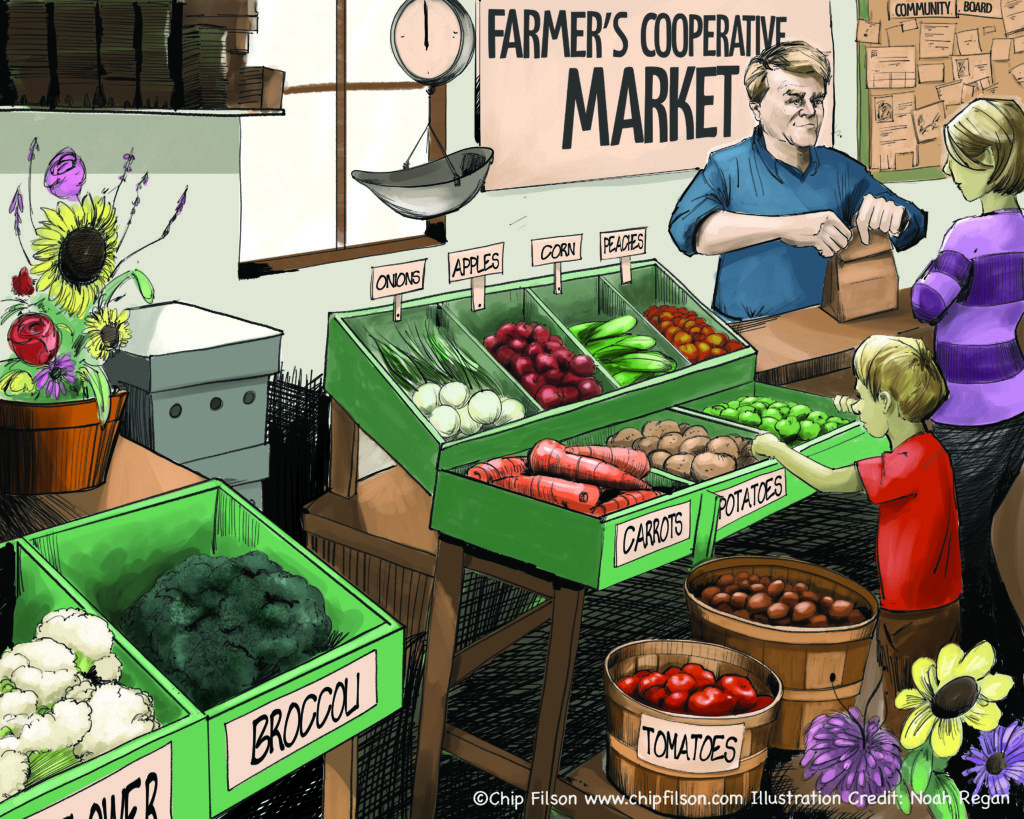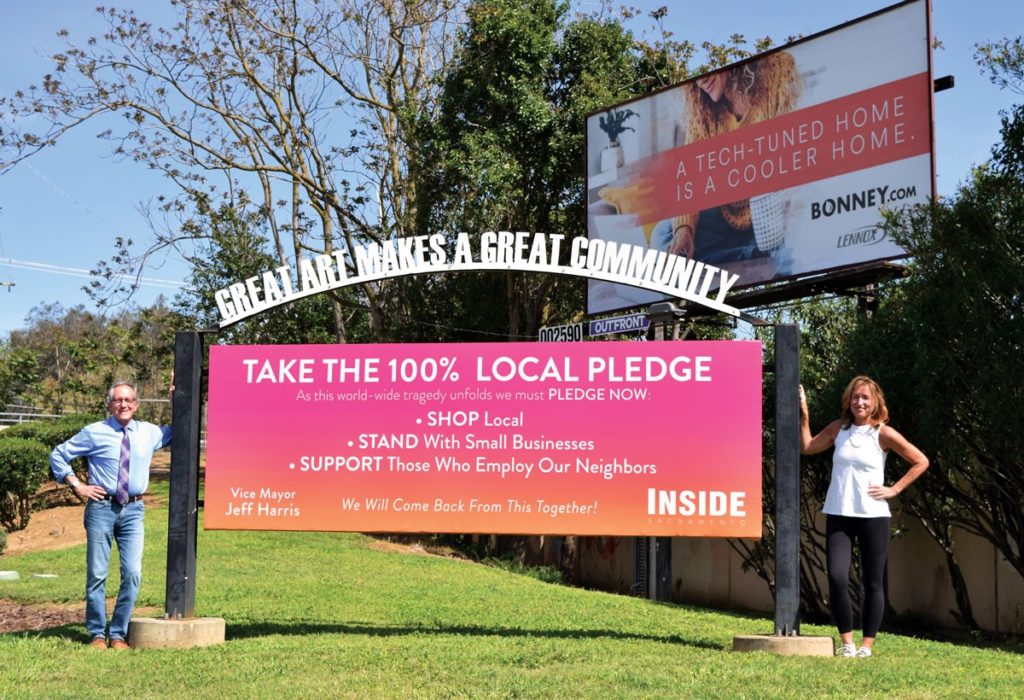From Farm to Table
The words community, communication, communion and the phrase common good share similar linguistic roots. Our community, literally common unity, depends on the relationships with those around us.
This shared experience was, and still is, the foundation of a cooperative. Knowing our neighbors, learning their stories, and supporting individual ambitions.
Crises enhance how these “normal” interactions expand to reinforce connections and shared purpose.
Summoning Local Spirit
This cooperative spirit was again called forth in this message from Patelco Credit Union:
Support your local businesses and non-profits
If you’ve already paid your bills, have an emergency fund, and taken care of your immediate needs, consider how you can use the rest of your stimulus payment to benefit your local community.
Non-profits are being called on to do more than ever before, so consider donating to them. We continue to partner with food banks throughout the Bay Area and Sacramento area, many of whom need extra donations right now.
Anchor Institutions
In economies dominated by large national firms who source from global supply chains, the importance of local anchor institutions is magnified in this crisis. Cooperatives along with hospitals, colleges, churches and myriad local businesses create self-supporting “eco-systems.” These institutions can leverage their assets and revenues to promote local development by:
- Directing their purchasing power toward local vendors.
- Hiring their workforce locally.
- Providing skills training for people in the community.
- Incubating the development of new businesses.
- Serving as community leaders and network builders.
- Financing development to promote local retail, employer-assisted housing, and community land usage.
Credit unions are an essential anchor for long term community sustainability.
The 100% Local Pledge
When the sweeping small business closures were ordered throughout California in March, the publication Inside Sacramento was concerned about the many small business owners who serve the area’s neighborhoods who were featured in their publications.
The COVID crisis heightened the many challenges small businesses face every day. So as a community champion, the publication began a city-wide effort to urgently support local firms with The 100% Local Pledge. This campaign included yard signs, social media messages, filmed TV spots and the support of local elected officials.
The first business partner to sign on was Safe Credit Union providing funds and marketing support. (https://www.cutoday.info/Fresh-Today/SAFE-News-California-CU-Signs-On-With-100-Local-Pledge-Campaign) CEO Dave Roughtan explained his credit union’s action: “. . . we can make a difference – but we have to work together. Things may have felt a little out of control. But we – together – can take back the future of our region. . .”
Relearning in a Crisis
The COVID crisis reinforces basic facts about the American economy.
One lesson is that consumers have figured out that food does not come from grocery stores. As farmers destroyed crops, livestock and dumped milk due to disrupted supply chains, local farmer’s markets show us the importance of a direct farm-to-table option.
While the pandemic crisis is national, even global in scope, the health care response must be local.
Another recognition of the vital role of “local” is the bipartisan Payment Protection Program (PPP). The purpose was to support local enterprise. One estimate is that 80% of credit union PPP advances went to firms with fewer than 10 employees.
In good times and crises, cooperatives are anchors.
Our actions around inequality, wealth, and power create alternatives in society which empower individuals via collective efforts. These cooperative, group-centered solutions help underwrite local choices necessary for meaningful lives.


